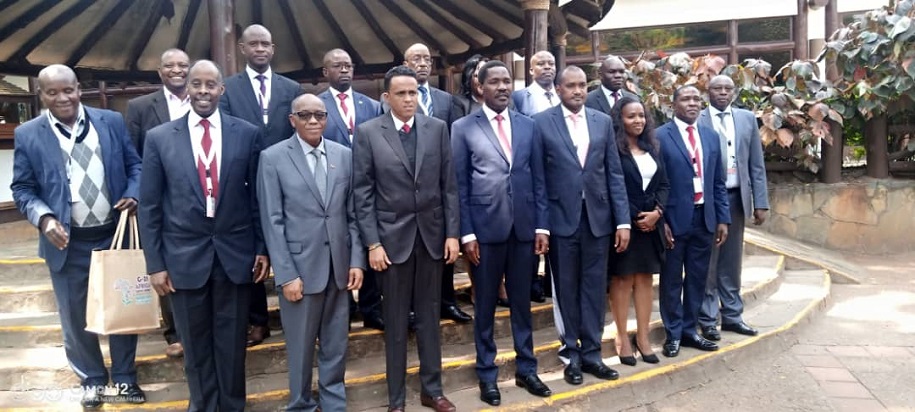KAMPALA – The Summit of African Union Ministers sitting in Nairobi days ago certified coffee as a key strategic commodity for the poorest yet resource-rich continent.
The development would require trading in the commodity to be strategically anchored collectively under the AU Agenda 2063.
The 25 coffee-producing countries under the umbrella of Inter African Coffee Organization [IACO] signed the declaration in Nairobi last week to adopt coffee as a strategic agricultural commodity for Africa.
The summit that ended Friday in Nairobi was held under the theme “Sustainable Development and Economic Growth in the African Coffee Sector” and drew agriculture, trade and foreign policy ministers, coffee trading consortiums and multinationals in the coffee sector.
According to the declaration by the G25 African Coffee summit, signed by Kenya’s Cabinet Secretary, Ministry of Agriculture, Livestock, Fisheries and Cooperatives Peter Munya, and Uganda Minister of Agriculture Frank Tumwebaze, the decision would give Africa the leverage to address all the challenges faced in the coffee industry in a bottom-up approach.
“This would give countries direction in treating and addressing the challenges faced by the farmers, traders and all the players in the coffee production value chain under the auspices of the African Union,” reads the declaration in part.
The summit called for an expedited process for the AU Commission to develop an evaluation framework to enable technocrats trail the socio-economic impact on coffee farmers in countries and regional efforts to alleviate poverty from the household level.
The ministers at the summit however noted that “all these would require the AU to enact the African free Trade Area [AfCFTA] which would allow full cooperation amongst the African countries thus encourage Inter-Africa Trade to discover the untapped coffee markets within the continent.”
The summit of Ministers recommended that governments need to enhance access to finance to the farmers and government entities to widen the schemes like the African Coffee Facility fund that would support financial institutions like the African Export-Import Bank [Afrexim Bank] and the African Development Bank.
To handle the value chain challenges including value addition and domestic consumption, the ministers agreed to “support research, and work out collective formulae to entice the youth into the coffee sector and as well empower women with land rights and incentives to coffee farmers,” the declaration reads.
The declaration also points out that “A shift in digitalisation will facilitate transparency and traceability of the origin of African coffees which will enhance the transformation of the African coffee value chain.”
African coffee has had to battle with the low domestic consumption virtually in all countries, attached to cultural and mindset issues. This has presented challenges in developing domestic markets on the continent.
Coffee consumption has been growing at least 3 percent annually for the last two to three decades, but the figures produced in Africa have remained low, a fact attributed to lack of processing plants that would enhance value addition.
Ranked at US$465bln in the global market, coffee is only second to oil among the most traded commodities.
At least 58 percent of the African Population derives its livelihood from the agricultural sector directly or indirectly, making coffee one of the most critical products in alleviating poverty and addressing household income in rural Africa.
Ethiopia is Africa’s top coffee producer while Uganda, which produces both Arabica and Robusta coffee type, is the continent’s top exporter, as Ethiopia consumes most of its coffee domestically, leaving fewer quantities for export.
https://thecooperator.news/kenya-to-host-first-africa-coffee-summit-this-week/
Buy your copy of thecooperator magazine from one of our country- wide vending points or an e-copy on emag.thecooperator.news
